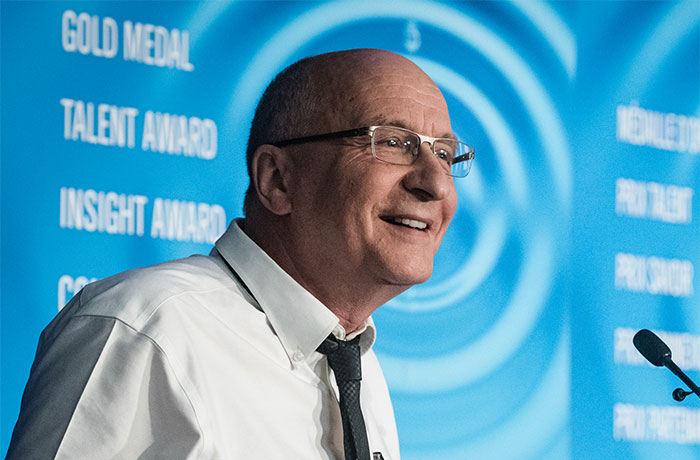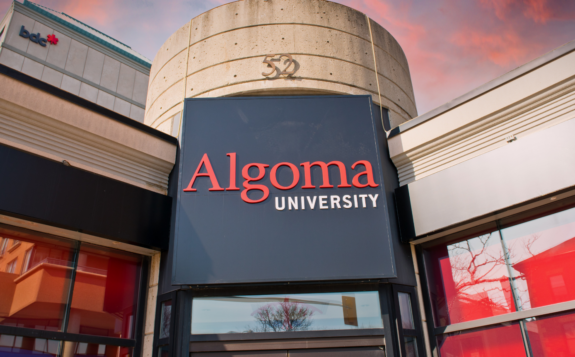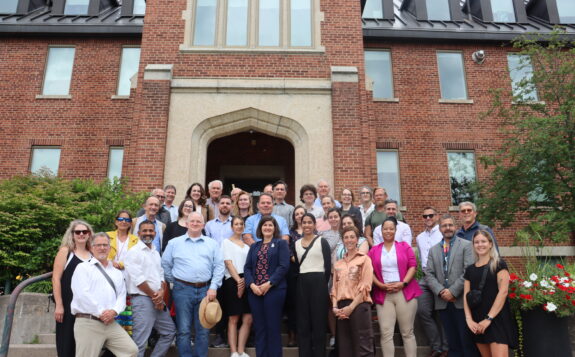John Willinsky gives some of the credit for founding the Public Knowledge Project (PKP) to the Sundays spent browsing scholarly journals in the Arthur A. Wishart Library, while earning his Bachelor of Arts in English Literature at Algoma University College (AUC) in the 1970s. Those weekend discoveries led him decades later to take on the goal of making this research available to all. In the process, he created a sophisticated open-source scholarly publishing system that is used by more journals today than any other system in the world.
Having attended high school, as well as teaching school, in Sault Ste. Marie amid the first hints of the digital age, Willinsky decided to take advantage of the web to make scholarship more of a public good now that he was a professor of education. “In 1998, I started to shift my research from the study of literacy and literature education to the ways of improving the reach of scholarly publishing. With the introduction of the internet, it seemed possible to make research and scholarship more of a public good available to all,” he states. “That was the year I founded the Public Knowledge Project at the University of British Columbia with the intent of helping scholarly journals (and later books) move online and become ‘open access’ or free to read. As an education professor, I was frustrated at being forbidden by the journal subscription system from sharing education research with teachers, parents, and the public.”
Such frustration also inspired PKP, which got its start with an initial Social Sciences and Humanities Research Council of Canada (SSHRC) grant to create an open-source software publishing platform for scholarly journals. Open Journal System (OJS), as it is called, can be downloaded and installed for free. It is now being used by over 10,000 active journals. “This makes OJS, as far as I can tell, the most widely used scholarly publishing system in the world, operating in 25 languages, with almost all of these journals’ content open and free to read.” With over 2.3 million articles published by journals utilizing OJS, PKP continues to facilitate the global sharing of scholarly research and data.
PKP was also sparked by Willinsky’s sixth book (of 10) Learning to Divide World: Education at Empire’s End, in which he explored the educational legacy of European imperialism. “Was there a way, I wondered after finishing this book in 1997, of countering this legacy by utilizing new technologies to enable far more of a global knowledge exchange around this common project of learning. The post-colonial age had led to a global system of universities, and I wanted to see whether the web could be used to similarly expand participation in scholarly publishing for the benefit of all.” With over 60 percent of the journals using OJS published in the Global South, PKP plays helps others shared more of what they learn through research and scholarship.
In November, SSHRC presented Willinsky with the 2016 Connection Award for his continued commitment to advancing the sharing of knowledge. One of SSHRC’s prestigious annual Impact Awards and with a prize of $50,000 in research funds, the Connection Award acknowledges those who facilitate the exchange of research knowledge, creating intellectual, cultural, social, and economic impact. “The SSHRC award,” Willinsky notes, “really recognizes the dedication of PKP’s team, as these twenty committed individuals create a set of robust tools that scholars have used over the last 18 years to edit and publish quality journals and books around the world.”
From those 1970s weekends among the quarterlies in the Wishart Library to the Smithsonian Institute in Washington and Vietnamese Mathematical Society in Hanoi, among the many organizations using PKP software, Willinsky’s enthusiasm for scholarly publishing has come a long way.
Willinsky is currently Khosla Family Professor of Education at Stanford University and Professor (Part-Time) in the School of Publishing at SFU. At Stanford, he directs the Program in Science, Technology, and Society, as well as the Honours in Education Program, while at SFU he directs the Public Knowledge Project in a partnership with SFU Library.
He graduated from AUC in 1976. He earned his MEd in Educational Theory from the University of Toronto (1979) and his PhD in Education Foundations from Dalhousie University (1982).
Written by: Meaghan Kent
Share Article




